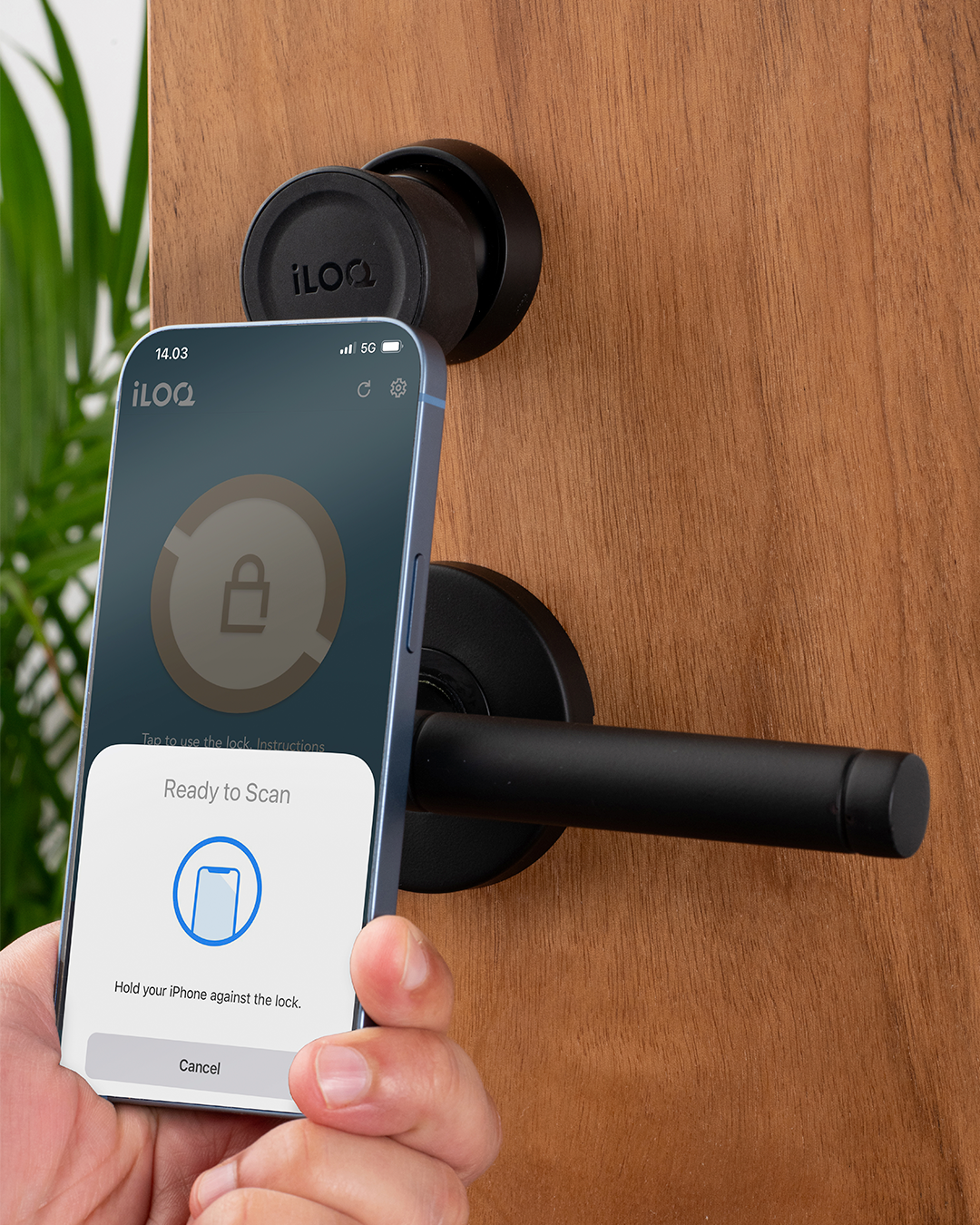What are mobile keys?

Are physical, mechanical keys a thing of the past? For the sake of security, the environment and lifecycle costs, we certainly hope so. Read more here.
A mobile key (sometimes referred to as a phone key) is a type of digital key that can be used to open a lock using a smartphone.
How do they work in practice?
The technology needed to make the ‘magic’ happen is near field communication (NFC). NFC is a set of communication protocols that enables communication between two electronic devices over a short distance. In the world of access control, the electronic devices are an NFC-enabled smartphone and the lock. The NFC induction of the phone creates power. This power is used to check if you have the correct access rights (which are stored in an app running on the phone) and, if you do, to open the lock.
What kind of locks are we talking about?
Locks come in many forms. They can be traditional locks on doors, or they can be padlocks, cam locks (which are used, for example, to secure lockers, safety boxes, cabinets, drawers and mailboxes) and even key tube locks (used by 3rd-party services, like fire or telecoms companies, who need access using a property’s own key which is stored in a wall-mounted tube).
What are the benefits of mobile keys?
The most obvious benefit is convenience. Nobody likes carrying around a bunch of keys. The more areas you need to access, the bigger the bunch. And trying to find the right key, particularly in an emergency, is stressful. With all the access rights you need to move around your work or living space sent to an app running on your phone (and we usually have our phones with us at all times), physical keys are entirely redundant.
The second biggest benefit is security. There are no worries about unauthorized access as a result of physical keys being lost, stolen, unreturned or copied.
Another benefit is administration. It’s a huge headache for locking system administrators to keep track of who has keys to where and when they can be used. In, for example, rental properties or student housing, tenants frequently change, and keys are easily lost or just not returned when they leave. Access rights, in the form of mobile keys, are sent to an app running on the smartphone. They can be updated remotely and in real time when needs change, and immediately cancelled.
Mobile keys ensure critical infrastructure runs smoothly
It’s not just residential properties that benefit from mobile keys. Think about critical infrastructure where there can be many sites located all over the country often in remote places. Technicians and subcontractors need to have fast and efficient access to ensure an uninterrupted supply. With physical keys, it is time-consuming, costly and inefficient (and damaging to the environment) to frequently drive between administration offices and sites to pick up and return the keys. With mobile keys sent remotely and in real time to the technicians, their workflow is faster and more streamlined, and they can be sure to have the right key at the right time. And site owners can rest assured that only the right people have access at the right times to safeguard their sites and the assets contained in them.
Access control systems using mobile keys are flexible and scalable. As new premises or facilities are added, locks can be quickly installed with no changes to the doors or major adjustments to the existing infrastructure needed. Access rights are quickly and easily updated to the app. And with locking solutions, such as iLOQ, that are also battery-free, site owners slash their lifecycle costs related to purchasing batteries and the maintenance time and costs associated with changing them. In conclusion, mobile keys bring a huge number of benefits for property owners, locking system administrators and end users alike. It is very likely that, in a short time, physical keys will be a thing of the past. In some countries and markets, smartphones with their mobile keys are already recognized as being the only key and power source needed.




















